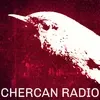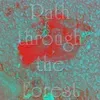Noise Live Radio Stations
Radio Stations
Choose a Genre
Noise: Challenging the Boundaries of Sound and Music
Noise music, a genre that emerged in the 1970s, represents a radical departure from traditional music forms. With its foundation rooted in harsh, abrasive sounds and a deliberate rejection of melody, harmony, and rhythm, noise music has carved out a niche for itself in the world of experimental and avant-garde sound. It is a genre that thrives on pushing the limits of what is considered music, challenging listeners to confront the very concept of sound itself.
At its core, noise music is not concerned with creating conventional, pleasant tunes. Instead, it embraces discord, distortion, and dissonance, focusing on textures and sonic elements that are often jarring and intense. These sounds—created using everything from feedback loops and distorted electronic devices to unconventional instruments—defy traditional musical structures. The result is a raw, confrontational experience that questions the very nature of music and sound.
In the context of radio, noise stations provide a space for listeners to immerse themselves in this challenging and experimental world. These stations offer an eclectic mix of both established and emerging noise artists, showcasing the wide range of sounds and styles within the genre. From harsh industrial noise to more abstract soundscapes, noise radio stations bring the sounds of this unconventional genre to a broader audience, providing a unique listening experience for those willing to explore the edges of music.
Noise radio stations often feature a combination of live performances, DJ sets, and pre-recorded tracks. Live performances are especially significant in the noise community, as much of the genre’s appeal lies in its improvisational nature and the energy of live sound experimentation. Many noise artists use a variety of unconventional instruments—such as contact microphones, circuit-bent toys, and even household objects—to create their unique sonic textures. These performances are often unpredictable, adding to the intensity and rawness that characterizes noise music.
In addition to showcasing music, noise stations also serve as important hubs for the noise community. Interviews with artists and producers offer valuable insights into the creative processes behind the music, and listeners can stay updated on upcoming shows, festivals, and releases within the noise scene. By offering a platform for both established and emerging artists, noise radio stations help foster a sense of community, connecting listeners with the pioneers and innovators of the genre.
One of the defining features of noise music is its focus on improvisation and experimentation, and noise radio stations reflect this by offering a space for artists to explore new possibilities in sound. Whether through live broadcasts or pre-recorded sessions, these stations provide listeners with a front-row seat to the dynamic and ever-evolving world of noise music.
For fans of experimental music, noise radio stations offer a compelling and thought-provoking listening experience. These stations go beyond the limits of traditional music, embracing the dissonance and chaos that noise music embodies. They offer a rare glimpse into a world where sound itself becomes the focus, and where the boundaries between music, art, and noise are continually being redefined.
In conclusion, noise music is a genre that defies convention and pushes the boundaries of what we understand as music. Through noise radio stations, listeners can engage with this raw and powerful form of sound, exploring its complexities and experiencing its energy firsthand. Whether you are a long-time fan or a newcomer to the genre, noise radio stations provide a platform for discovering the unconventional, exciting, and transformative world of noise music.
Noise music, a genre that emerged in the 1970s, represents a radical departure from traditional music forms. With its foundation rooted in harsh, abrasive sounds and a deliberate rejection of melody, harmony, and rhythm, noise music has carved out a niche for itself in the world of experimental and avant-garde sound. It is a genre that thrives on pushing the limits of what is considered music, challenging listeners to confront the very concept of sound itself.
At its core, noise music is not concerned with creating conventional, pleasant tunes. Instead, it embraces discord, distortion, and dissonance, focusing on textures and sonic elements that are often jarring and intense. These sounds—created using everything from feedback loops and distorted electronic devices to unconventional instruments—defy traditional musical structures. The result is a raw, confrontational experience that questions the very nature of music and sound.
In the context of radio, noise stations provide a space for listeners to immerse themselves in this challenging and experimental world. These stations offer an eclectic mix of both established and emerging noise artists, showcasing the wide range of sounds and styles within the genre. From harsh industrial noise to more abstract soundscapes, noise radio stations bring the sounds of this unconventional genre to a broader audience, providing a unique listening experience for those willing to explore the edges of music.
Noise radio stations often feature a combination of live performances, DJ sets, and pre-recorded tracks. Live performances are especially significant in the noise community, as much of the genre’s appeal lies in its improvisational nature and the energy of live sound experimentation. Many noise artists use a variety of unconventional instruments—such as contact microphones, circuit-bent toys, and even household objects—to create their unique sonic textures. These performances are often unpredictable, adding to the intensity and rawness that characterizes noise music.
In addition to showcasing music, noise stations also serve as important hubs for the noise community. Interviews with artists and producers offer valuable insights into the creative processes behind the music, and listeners can stay updated on upcoming shows, festivals, and releases within the noise scene. By offering a platform for both established and emerging artists, noise radio stations help foster a sense of community, connecting listeners with the pioneers and innovators of the genre.
One of the defining features of noise music is its focus on improvisation and experimentation, and noise radio stations reflect this by offering a space for artists to explore new possibilities in sound. Whether through live broadcasts or pre-recorded sessions, these stations provide listeners with a front-row seat to the dynamic and ever-evolving world of noise music.
For fans of experimental music, noise radio stations offer a compelling and thought-provoking listening experience. These stations go beyond the limits of traditional music, embracing the dissonance and chaos that noise music embodies. They offer a rare glimpse into a world where sound itself becomes the focus, and where the boundaries between music, art, and noise are continually being redefined.
In conclusion, noise music is a genre that defies convention and pushes the boundaries of what we understand as music. Through noise radio stations, listeners can engage with this raw and powerful form of sound, exploring its complexities and experiencing its energy firsthand. Whether you are a long-time fan or a newcomer to the genre, noise radio stations provide a platform for discovering the unconventional, exciting, and transformative world of noise music.










